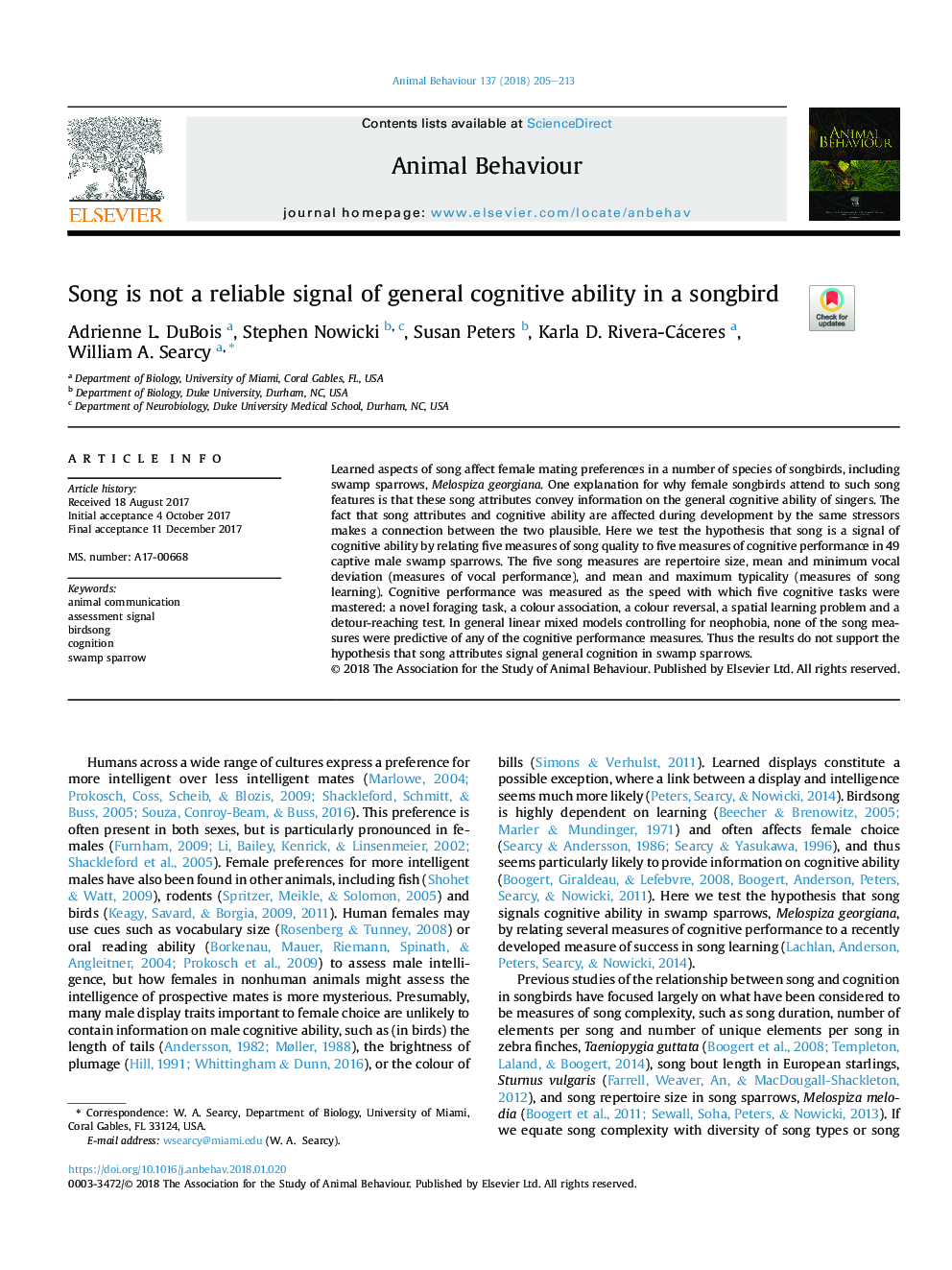| Article ID | Journal | Published Year | Pages | File Type |
|---|---|---|---|---|
| 8488652 | Animal Behaviour | 2018 | 9 Pages |
Abstract
Learned aspects of song affect female mating preferences in a number of species of songbirds, including swamp sparrows, Melospiza georgiana. One explanation for why female songbirds attend to such song features is that these song attributes convey information on the general cognitive ability of singers. The fact that song attributes and cognitive ability are affected during development by the same stressors makes a connection between the two plausible. Here we test the hypothesis that song is a signal of cognitive ability by relating five measures of song quality to five measures of cognitive performance in 49 captive male swamp sparrows. The five song measures are repertoire size, mean and minimum vocal deviation (measures of vocal performance), and mean and maximum typicality (measures of song learning). Cognitive performance was measured as the speed with which five cognitive tasks were mastered: a novel foraging task, a colour association, a colour reversal, a spatial learning problem and a detour-reaching test. In general linear mixed models controlling for neophobia, none of the song measures were predictive of any of the cognitive performance measures. Thus the results do not support the hypothesis that song attributes signal general cognition in swamp sparrows.
Related Topics
Life Sciences
Agricultural and Biological Sciences
Animal Science and Zoology
Authors
Adrienne L. DuBois, Stephen Nowicki, Susan Peters, Karla D. Rivera-Cáceres, William A. Searcy,
